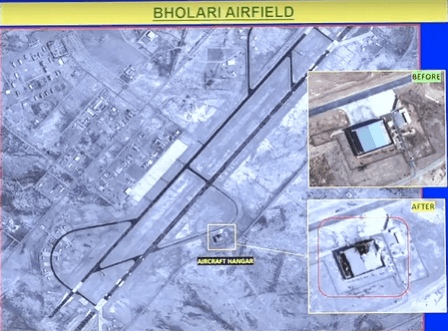
121 days after India destroyed terror infrastructure in Pakistan and Pakistan-occupied Jammu and Kashmir (PoJK), the Indian Army on Wednesday released a video of Operation Sindoor, which was carried out on the nights of May 6 and 7.
The Army also released a video of Operation Mahadev, in which three terrorists involved in the gruesome killing of unarmed and innocent tourists in Pahalgam's Baisaran Valley on April 22 were neutralized.
The Indian Army's Northern Command shared the video on social media, highlighting key moments from Operation Sindoor against terror bases in Pakistan.
!['Talks & Terror can't go hand-in-hand, India won't tolerate nuclear blackmail': PM Modi's ztern warning to Pakistan [Key takeaways from success of Operation Sindoor] 'Talks & Terror can't go hand-in-hand, India won't tolerate nuclear blackmail': PM Modi's ztern warning to Pakistan [Key takeaways from success of Operation Sindoor]](https://data1.ibtimes.co.in/en/full/816061/talks-terror-cant-go-hand-hand-india-wont-tolerate-nuclear-blackmail-pm-modis-ztern.jpg?h=450&l=50&t=40)
In a post, the Army described the May operation as an "example of restrained and decisive response." India clarified that these were precision strikes on select targets, carried out in response to the April 22 Pahalgam attack, and were not intended to escalate tensions. This is why both the government and the armed forces emphasized that India had agreed to a ceasefire.
The video also explains how the ceasefire between India and Pakistan came about — a matter that has drawn global attention, with reports suggesting US President Donald Trump was upset that India did not endorse his claim of "stopping the war."
"The precise strikes on terrorist launchpads and the elimination of the perpetrators of the Pahalgam massacre underscore our unwavering pursuit of peace in the region," the Northern Command stated on X.
#NorthernCommand ‘s resolute operations in #OperationSindoor were an exemplar of restraint turning into decisive response. Precision strikes on terror launchpads and the elimination of perpetrators of the #Pahalgam massacre underscore our unwavering pursuit of peace in the… pic.twitter.com/PeUIahQKF6
— NORTHERN COMMAND - INDIAN ARMY (@NorthernComd_IA) September 3, 2025
The message from Indian military officials in the video is clear: India does not alter its decisions under pressure from any third-party mediation.
The footage also includes rare visuals captured by drones and missiles used in the strikes.
Regarding the ceasefire, the video features a clip from May in which Lt. Gen. Rajeev Ghai, India's Director General of Military Operations (DGMO), explicitly states that it was his Pakistani counterpart who "proposed for us to cease hostilities." This is the only portion of the three-minute-long video in which Indian officials speak.

Terrorists involved in Pahalgam carnage eliminated in Operation Mahadev
As far as Operation Mahadev is concerned, three Pakistani terrorists responsible for the gruesome Pahalgam terror attack were eliminated during this mission. On July 28, security forces neutralized three Lashkar-e-Taiba terrorists — Suleman, Afghan, and Jibran — confirming Lashkar's role in the Pahalgam massacre. While Operation Sindoor targeted the masterminds behind the attack, Operation Mahadev eliminated the perpetrators directly involved.

Together, Operation Sindoor and Operation Mahadev represent the most precise and prompt response ever delivered by Indian security forces in the aftermath of a terror strike.
During Operation Mahadev, three rifles were recovered from the slain terrorists — one M4 carbine and two AK-47 rifles. Earlier, the NIA had recovered empty cartridges from the Baisaran Valley after the Pahalgam attack and sent them for forensic examination. When the rifles seized during Operation Mahadev were tested, forensic analysis confirmed with 100% certainty that the same weapons were used in the April 22 massacre. The findings revealed that 44 of the recovered cartridges matched the M4 carbine and 25 matched the AK-47 rifles.









